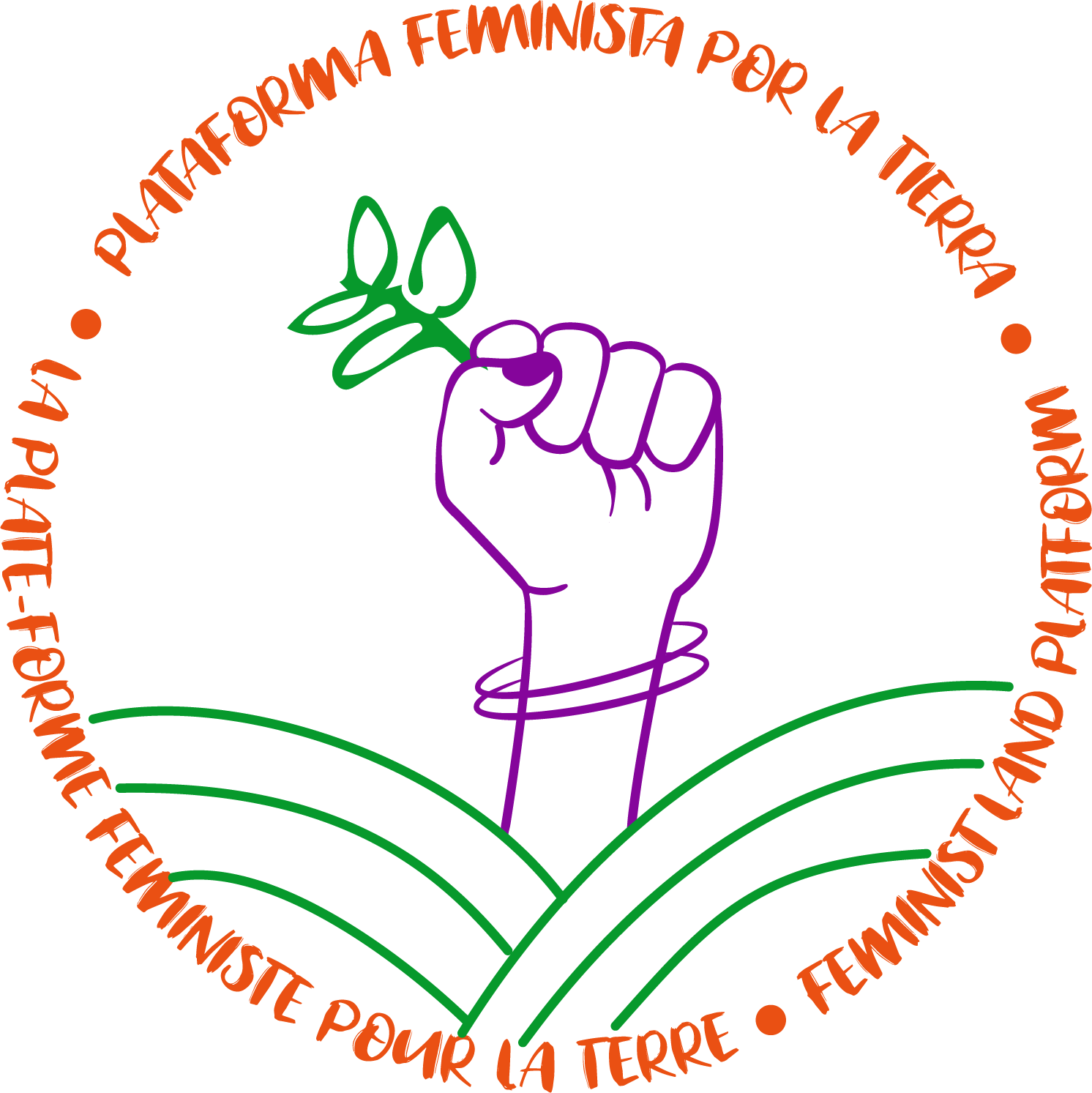On March 7, 2023, FLP convened a round table discussion alongside CSW67, organized in partnership with OXFAM International and sponsored by the Ford Foundation, entitled “Expanding Women´s Land Rights to Guarantee Environmental Sustainability and Dignified Living Conditions. Thirty women from Latin America, Northern Africa, Africa, the United States, and Europe, representing women’s and feminists organizations from diverse constituencies and plural voices and analysis, participated in the event in response to the need to expand the size and quality of strategies for resistance and change, through building a network involving organizations that are working on women’s land rights and the environment.
Responding to FLP´s call to form alliances to occupy strategic spaces at all levels by engaging feminist organizations and leaders in active participation and decision-making processes affecting the lives of women´s rights to land, we agree on:
- Positioning ourselves as a non-partisan movement focused on a contra-hegemonic, decolonial and anti-oppression resistance to gender inequality relating to land & natural resources. Hence every action we take goes against structural racism and all its facets, manifested in elements such as race, gender, class, caste, religion, culture, and sexual preference, among others.
- Opposing the criminalization of social movements that threatens democratic processes and institutions, human rights, and human rights defenders, evidenced by the shrinking of democratic spaces worldwide through the abuse of military or police forces, often legitimatized by normative rules put in place.
- Rejecting all ongoing forms of political/state violence and abuse through human rights violations which mainly affects women and children in all areas of their lives – health, education, housing, land, livelihoods, etc.
- Rejecting militarization and imposition of global policies that go against resistance and rebellion of impoverished populations in their legitimate right to protest.
- Supporting and contributing to an increase in knowledge, evidenced by local experience, in confronting fundamentalisms of a neoliberal and extractive system and authoritarian governments and neofascist groups which are putting democracy at risk and colluding with the ongoing regression of fundamental rights for women and LGBTQI+ groups, witnessed in everyday aspects of life – religion, culture, and education.
- Acting as a catalyst – through messages, statements, knowledge production, and campaigns with elements from local-based organizing – thus challenging the dissemination of fake news and defending women´s rights to land locally, regionally, and globally.
- Deepening regional analysis and consensus in defense of democracies by bringing together feminist women’s organizations with independent political partnership.
- Promoting the Escazú Agreement, especially regarding food sovereignty and in defense of land and territories.
- Fostering solidarity with other feminist and women’s groups, organizations, and social movements while strengthening the political agenda for women and their struggles on the ground over body-land-territories.
Call to action
As a call for action in our collective positioning towards a real transformative gender intersectional agenda for women’s land rights movements and supporters, we agreed on the need to urgently implement and advocate for the following:
- Empower young women on political decolonial feminism.
- Ensure that grassroots women, who are in the forefront of the fight for land and environmental rights, are listened to for what they need most from other sectors to help in the defense of their territory.
- Strengthen movements as an important bridge for grassroots organizations to position themselves and learn from a variety of experiences worldwide.
- Consider oppressive geopolitical and economic structures that exploit peoples and territories in the global south, especially women, in all analysis and advocacy.
- Exchange strategies that as women we have built in the defense of our territory at local and regional levels.
- Plan new strategies for advocacy across borders so that we can widen and strengthen our voices.
- Work globally to position transformative practices and attitudes that create a collective agenda.
- Educate men to learn and perceive their privileges, understanding that the bodies of women belong to women only and men must respect that and value it.
- Work collectively in platforms creating solidarity, and support other women who are unable to express their voices due to oppressive systems.
- Build information and knowledge from the ground to serve as evidence for advocacy, as international institutions need access to this.
- Insist that donors be well informed by grassroots women and their organizations, understanding and respecting their work and needs based on their specific realities. Donor support must respond to the needs of these women, strengthen their local work in their different contexts, and enable them to directly advocate for and claim their rights at the international level.
- Conduct research on previously identified roots causes and understand how they are structural.
Considering pressing global challenges that threaten democracies, the environment, marginalized groups, global peace and life itself, and bringing to the center of all discussions our positioning and the urgent actions indicated above to bring about transformation, we demand inclusion, participation, the end of all types of violence, and support for our movements at the community level so that we are able to conduct our trainings, exchange experiences among our movements, and continue to learn from each other.
Finally, we call on everyone present at the CSW67 to join forces in the struggle for gender justice and women’s rights to land and territories as well as to unite, amplify voices and analysis from women’s struggles for diverse constituencies, building alliances to bring change to address oppressive practices and social norms for a just and equal society for all.

No comment yet, add your voice below!